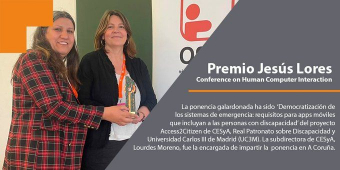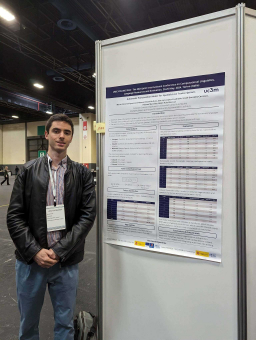Presentación
The Human Language and Accessibility Technologies Group (HULAT) is composed by a multidisciplinary team of PhDs and professionals in the field of information technologies. This group is part of Computer Science and Engineering Department of Universidad Carlos III de Madrid. We participate in R & D projects related to human language technologies, information retrieval and extraction in several application domains, question answering systems, usability and accessibility of user interfaces. We work in close collaboration with a great number of companies
The group was part of MAVIR consortium, a research network co- funded by the Regional Government of Madrid and the European Social Fund.


